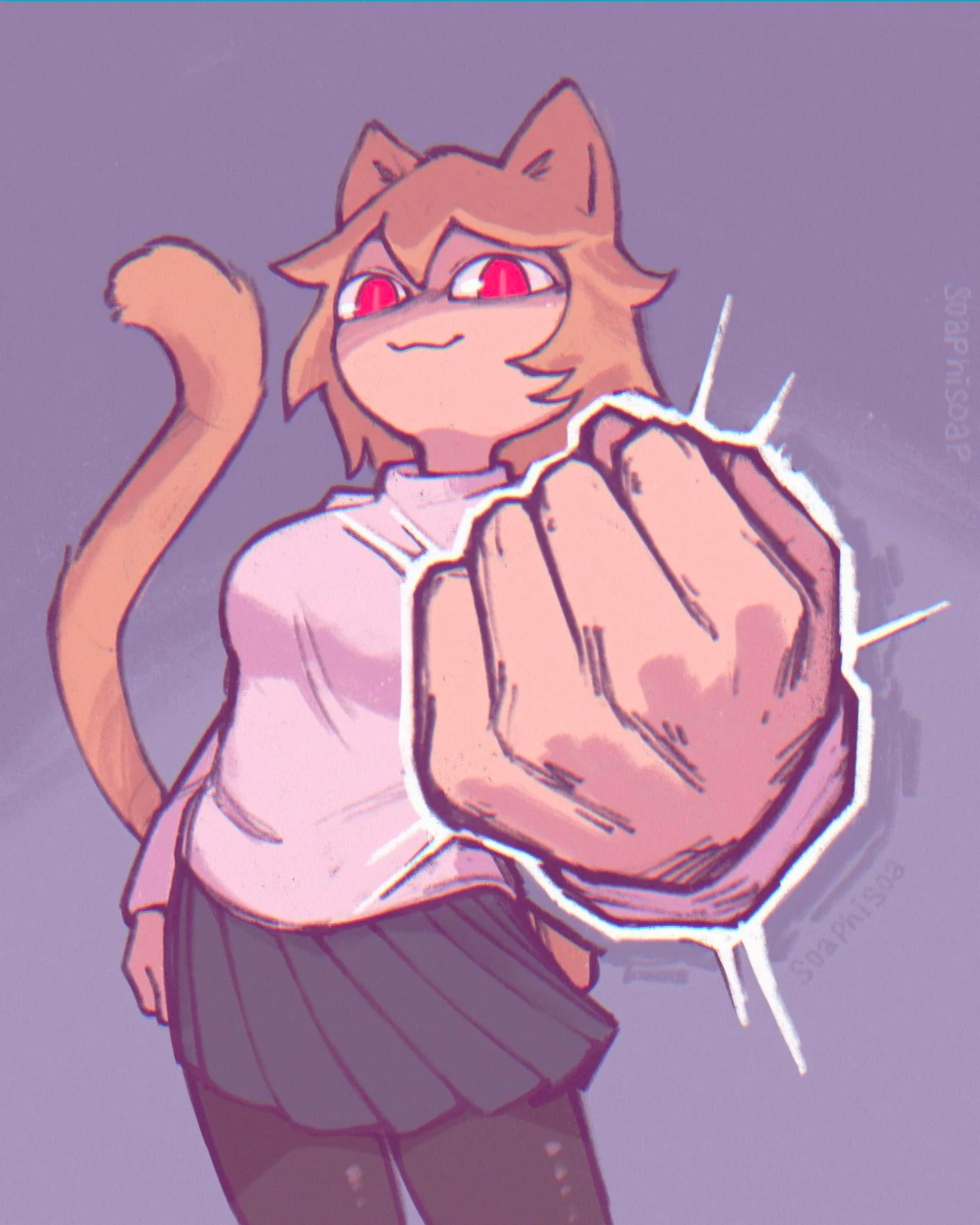TRPG Player Aims For The Strongest Build In Another World ~Mr. Henderson Preach the Gospel~ - Vol 3 Chapter 22
- Home
- All
- TRPG Player Aims For The Strongest Build In Another World ~Mr. Henderson Preach the Gospel~
- Vol 3 Chapter 22 - Boyhood: Autumn at Thirteen
Vol 3 Chapter 22 – Boyhood: Autumn at Thirteen
As the wheat ripens abundantly and sways in the warm breeze that bathes it in golden light, the empire enters its most vibrant season. It is the time of harvest, when the Harvest Goddess—celebrated for her abundant golden hair—is rightly honored.
The manor’s peasants work proudly to reap a year’s toil, celebrating that another gentle summer has passed and that an autumn free from storms has arrived. In this season, even hard labor and the great joys that lie ahead make every drop of sweat feel as sweet as ambrosia.
Wagons laden with grain for tribute traverse the highways, and merchant caravans carrying seasonal goods form long, orderly columns. Along the roads—livelier now than in spring—patrol units from all directions fly back and forth, and the bold, constant clatter of horse hooves never ceases.
Yet precisely because it is this season, there is no shortage of fools who, with reckless stubbornness, insist on laboring even at the risk of overexertion.
A group had taken up position along a side road branching off from the main highway leading out of the Imperial Capital—a road that, frankly, led nowhere significant. The shallow valley, nestled between gently rolling hills and winding its way through a modest patch of flat land, was a notorious blind spot and difficult terrain.
Those stationed there were a band of mercenaries.
In this era many believed that if you kept your activities hidden, you could do whatever you pleased. In most cases, by eliminating every potential informant, the mercenary trade often doubled as brigandry. Every winter, a manor, drained and withered from being exploited for winter rations, might finally beg a local magistrate in spring—only to be found empty by the time the patrols arrived. Such commonplace tragedies occurred somewhere every year.
This mercenary band, composed of roughly thirty infantrymen, was no exception.
Though the road was narrow, several manors and towns lay ahead. As a result, wagons carrying tribute did pass by, and in the sparsely populated areas there was even high demand—in fact, caravans laden with vast quantities of goods (mostly exotic delicacies and liquors from other regions that sold well at the harvest festival) also frequented the road.
Moreover, the patrol units were inevitably stationed on the trade routes between the main highway and the major cities, so they rarely visited these developing—or forgotten—roads. Consequently, they had already managed three successful operations here this autumn.
One operation targeted a convoy of tribute wagons; another focused on a small merchant caravan. Even after devouring prey that would more than satisfy fewer than forty men, they still craved more.
Tragically, the tribute consisted merely of rye and barley destined for fodder, while the caravans carried assorted dried fish from the southern inland sea—none of which suited their tastes. The last caravan had transported alcohol, which left them somewhat satisfied, but most of it was a tart, subpar ale that hardly hit the mark.
Furthermore, the lack of women was a sore point. Although there were some, they were all mages who fought to the death, making them entirely unattainable for casual company—a tremendous disappointment.
Then, before these frustrated men, a pair of travelers appeared.
The two, small in stature and clad in simple travel attire, were riding magnificent steeds that contrasted sharply with their modest appearance. They rode on striking black warhorses whose noble stride in the crisp autumn air, with sweat glistening under the breeze, exuded a martial dignity hard not to admire. Yet the horses were undeniably too fine a mount for what appeared to be nothing more than mere children.
Well, even if one were to ask if the mounts suited them, the horses themselves would likely have snorted in disapproval.
Driven by base desires, the mercenaries assumed their well-practiced formation. A few fired arrows from the rear to drive the target onward, while the main force set up a simple semi-encirclement at the valley’s exit—no fancy maneuvers, just straightforward tactics.
But the simpler a formation, the stronger it can be; humanity has, since its inception, devoted itself unerringly to surrounding its enemy.
Eight men concealed behind a rock waited until the pair had passed, then fired arrows at their unprotected backs—ensuring the projectiles merely grazed them while sparing their expensive horses.
Even so, the tactic was effective. Humans are notoriously sensitive to pain; when startled, they typically either flee in a panic or stubbornly remain rooted to the spot. Even a caravan escorted by mercenaries or adventurers, unwilling to engage in a direct, costly melee, would usually choose to retreat.
Even if the prey suspected a trap, there was little they could do. Wagons, with their large turning radius, find it hard to maneuver sharply in hilly terrain. And if they did attempt a turn, there was ample time for an improvised barricade—tying wooden stakes with rope—to be set up, and once a signal fire was raised, the main force would soon charge to pummel their rear.
All that then remained was to latch onto the prey that turned its back. In truth, this method was far easier.
How simple and straightforward it was! Today as well, the mercenaries beamed with satisfaction as their arrows flew precisely as aimed—threatening yet never quite hitting their targets…
But that was as usual—and nothing further was expected.
Then, for reasons unknown, the arrows halted in midair. Four of them froze in place as if caught by something, while the other four were deflected by an invisible barrier, ricocheting off in an unforeseeable direction.
There came a click of tongue. Occasionally, an astute caravan mage would erect an invisible barrier—though they never referred to it by that formal name—to block the initial assault. Likewise, one of those two children might well be a mage. Although they may have been miraculously detected, after all, children are prone to falling for traps without hesitation.
However, their optimism was soon dashed, and the two children veered off the main road, turning their horses around.
Moreover, one horse, with its majestic form, charged swiftly up the hill, while the other, barely managing to retreat, had a rider in a bizarre, lifted posture whose aim was unmistakably fixed on them.
There came another click of tongue. Among the eight men, the deputy leader—whose prowess had already been proven by the decapitation of five foes—spat irritably, then barked orders to his subordinates with a note of satisfaction. If the prey drew near, it would work to his advantage; after all, all he desired were the horses, and any extraneous gear could simply be stripped away.
With a shout directed at the recklessly charging rider, seven arrows rained down like a sudden deluge. The arrows, tearing through the air, could not possibly be stopped by mere linen travel clothes and a hooded cloak, nor could an ordinary mage’s barrier deflect all seven at once.
That would be the case if it were an ordinary mage.
From beneath the folds of my cloak, a burst of silvery light erupted, effortlessly cutting down three arrows, while the remaining projectiles halted in midair and were instantly flung back. In a manner beyond their imagining, the four remaining arrows impaled parts of the limbs of four men, rendering them unable to continue the fight.
How many could have possibly reacted in that fleeting moment?
Seizing the gap created amidst the scattering blood, the rider dismounted his stirrups from a crouched position and sprang from his saddle. Then, after executing a seemingly impossible midair leap, he attacked the closest subordinate.
In one unpredictable stroke—its timing and lingering effect unreadable—I knocked the thumbs off those who had been gripping their bows by sheer habit, neutralizing yet another foe and leaving only three remaining.
Witnessing such an almost unreal spectacle, the two mercenaries who unsheathed their swords deserved eternal praise. As quasi-professional soldiers, they were the sort of killers who would casually slaughter any mage unskilled in combat.
And yet, even their prowess was rendered powerless before the rider—who now confidently relied on his two solid legs.
Organic swordplay, following a complex, non-linear trajectory, sent a sword soaring into the air. Amidst piercing screams, as if in pursuit of the airborne blade, each fighter’s thumb moved along an identical path, painting the calm blue sky with a dread that spoke of impending carnage.
Only the deputy leader remained. In that moment, I wondered, “What in the world did I get myself into?”
Beneath the hood of my cloak, I noticed something dullly glowing blue that sent shivers up my spine. Instantly, my battle-honed instincts kicked in. I reached for the crossbow I always kept at my waist—ever ready to fire.
The reassuring heft of the crossbow in my hand conveyed a sense of martial authority. Its penetrating power—known on the battlefield as the “knight-slayer”—was effective even against an invisible barrier that mages might employ. Even the kind of barrier that could stop a sword or an arrow proved flimsy compared to bolts that cut through armor as if it were paper.
Following my well-practiced instincts, I took aim and fired. The bolt, boasting an initial velocity incomparable to that of a mere arrow, made evasion virtually impossible at such close range. Even if a person’s reflexes managed to kick in, there was simply no way to match a bolt that flew swifter than a bird.
Yet, as if nothing had happened, the rider—despite every indication that he should have fallen—swung his blade and struck my temple with its edge.
In a vision that turned white from intense pain and shock, I almost convinced myself that the scene I had witnessed moments before was nothing but an illusion—that a bolt had been swallowed up and vanished into some black fray born in the void…
【Tips】 Under the laws of the Triple Empire, if tribute under the supervision of noble families is “plundered,” it is deemed that the tribute has been “justly paid” as a result of the perpetrator’s moral failing, and any additional taxation imposed on the manor is strictly forbidden.
Therefore, brigands active during the harvest season may occasionally incur bonuses not normally applied.
Frustrated by the failure to raise a signal fire and the absence of any adversaries, the leader of the mercenary band marched along the highway with his twenty-something men. Arriving at the ambush site, they found no one there—only the lingering, acrid scent of blood in the air.
Were they slain? I briefly worried, but it was highly unlikely.
The assault force, though a mere eight men, had been bolstered by skilled fighters to make up for their numerical weakness, and the deputy leader I trusted—not only having already claimed five helmeted heads but also being a keen-eyed warrior—could not possibly lose to prey that casually appeared in these backwaters, prey that looked as though they were nothing more than children.
Yet, as unbelievable as it was, none of my subordinates emerged. Just as I began to wonder if something had happened, arrows began to rain upon the vanguard.
Arcing in a mountainous trajectory, most of the arrows were deflected by the curves of helmets and the thickness of armor. Unlike the scenes depicted in scrolls or heroic tales, real combat armor and helmets reliably deflect even arrows aided by gravity. Otherwise, those burdened with such heavy gear would have quickly perished; whether hit or not, being light is far more advantageous.
Screams rang out only from those unfortunate souls whose vulnerable parts—protected solely by their armor or fitting into gaps in the plating—were struck.
Although a few casualties occurred, the commander ordered everyone to assume a defensive stance without hesitation. By reading the angle of attack and raising shields, and by clustering tightly together, they managed to cut down the damage from stray arrows. While it was natural to ponder what had just transpired, ensuring that the ingrained defensive posture held was paramount—if you aren’t alive, you can’t even begin to question how an ambush you launched turned against you.
He remained astonishingly calm. A battle-hardened mercenary, he had witnessed countless instances on the fluid battlefield where an ambush he initiated was, in turn, turned upon him. At first, he suspected that the enticing prey he had targeted might have been nothing more than bait. It appeared they might have overdone it a bit—something I had heard of before: to lure in bandits who could evade large patrol units, a feeble decoy is deliberately set out, so that when they bite, the attackers can strike.
Patrol units, though often bluntly honest, were not oblivious to such underhanded tactics. Their acuity in tracking and exposing such tricks often surpassed that of regular soldiers. Given that they spent every waking hour hunting bandits, it wasn’t surprising—but for those on the run, it was utterly maddening.
So then, next…
After receiving the order to brace for a pincer attack, my remaining subordinates quickly formed a tight formation behind me. Once the enemy was pinned in place, what followed would be as predictable as it was routine for any fighter. This would thwart their initial charge, and then all that was needed was to exploit the gap and break free from the encirclement—but once again, my expectations were dashed.
After all, the attackers had not wavered from their pursuit of the “tasty prey.”
Yet the sight before me was so alien that my brain, catching a glimmer of reflected light, could scarcely believe it. For, surrounding the rider—who charged forth with his sword in hand—there were inexplicably six swords floating in midair, even though no one else was present.
The phantom blades advanced with gliding steps, as though each sword, lacking a wielder, were accompanied by a spectral swordsman, exuding a mysterious aura of menace. It was not vanity or whimsy that caused them to float; men, living in places stained by the odor of blood, could clearly feel that these were forces capable of slaying us.
Taken aback by the bizarre spectacle, my mercenaries, already poised for a counterattack, pressed their shields closely together and aligned the tips of their spears to confront the threat. Indeed, while that mysterious and terrifying aura was undeniable, at the end of the day, it was still just a sword. Even if you faced seven swordsmen, the advantage was limited. How could mere warriors overcome a tactic—the spear wall—that had withstood for millennia?
However, just as the spear tips were mere steps away from impalement, the solitary swordsman thrust his left arm forward in a parry. It appeared, to our eyes, as a comically reckless attempt to keep his unguarded body away from the deadly points—but in truth, it was something entirely different.
And then, in the next moment, the world was overwhelmed by a blinding light reminiscent of lightning; with a deafening roar that split my very mind, the world shattered…
【Tips】 Magic, while employing the laws of physics, simultaneously disregards them—thus enabling it to impart “perfect directionality” to its effects, whether through heat, vibration, or even light.

































